18 Best Private Search Engines in 2023 - Panda Security
Have you ever looked up something inconsequential only to be bombarded with ads for it everywhere else you go online? That can be a problem with big-name search engines like Google, Bing and Yahoo, because they use a variety of coding, trackers and activity logging to collect personal information about users. This data is then used by those search engines and third-party businesses to analyze user behavior and launch personalized, targeted ad and content campaigns.
In some situations, being served personalized information can be useful. But for many, the idea of large corporations selling off your personal data can feel like a breach of privacy and a risk for your personal online safety.
Thankfully, there are ways for users to search the internet without being tracked, such as using virtual private networks (VPNs) or private search engines. Here is a list of the 18 best private search engines you can use without being followed.
What Is a Private Search Engine?
Private search engines are programs used to browse the internet that do not store search or user information. These search engines are typically used to maintain user privacy.
User information includes a variety of data that can be used to identify who a user is. Some of that information includes:
- IP addresses
- User agents
- Unique identifiers, which can be found in cookies
- Search terms
- Browser fingerprints
- Location information
There are a number of private search engines available that are used around the world. However, it is important to understand that every search engine offers a different level of privacy based on how the business gathers revenue.
Types of Private Search Engines
There are two types of private search engines available to users.
Metasearch engines — or proxy search engines — are online information retrieval tools that use information gathered from multiple search engines to provide results for user queries. Often run through a proxy server to mask personal information during the search process, metasearch engines have the advantage of retrieving a wider range of results.
However, these tools are often not as advanced as major search engines and may have a more difficult time interpreting complex syntax queries. Additionally, metasearch engines often use sponsored link advertisements as a revenue source, which affect search results.
A second type of private search engine uses proprietary crawlers to crawl the web and create independent indexes of the web. This results in a wider variety of search results that may not be affected by personalization filters. However, the number of results may still be smaller than those gathered by big-name search engines.
Why Should You Use One?
Unlike the more common search engines like Google, Bing or Yahoo, private search engines are preferred by many users because they don't capture user or search information. This information can be used to:
- Track users online
- Analyze user behavior
- Inform targeted ad campaigns
- Enhance personalization on online services
While most of this information may be used by advertisers or site developers in benign marketing campaigns or program development, it can also be collected and used against you by different malware or cybercriminals.
And although many regular search engines require users to opt in to sharing personally identifiable information in order to stay compliant with General Data Protection Regulation (GDPR) laws and regulations, many users prefer to avoid risking privacy altogether by solely using private search engine options.
The 18 Best Private Search Engines
From saving search query history to capturing personally identifiable information, users have the right to private internet use. Here are some of the top private search engines to help you browse undetected.
1. DuckDuckGo
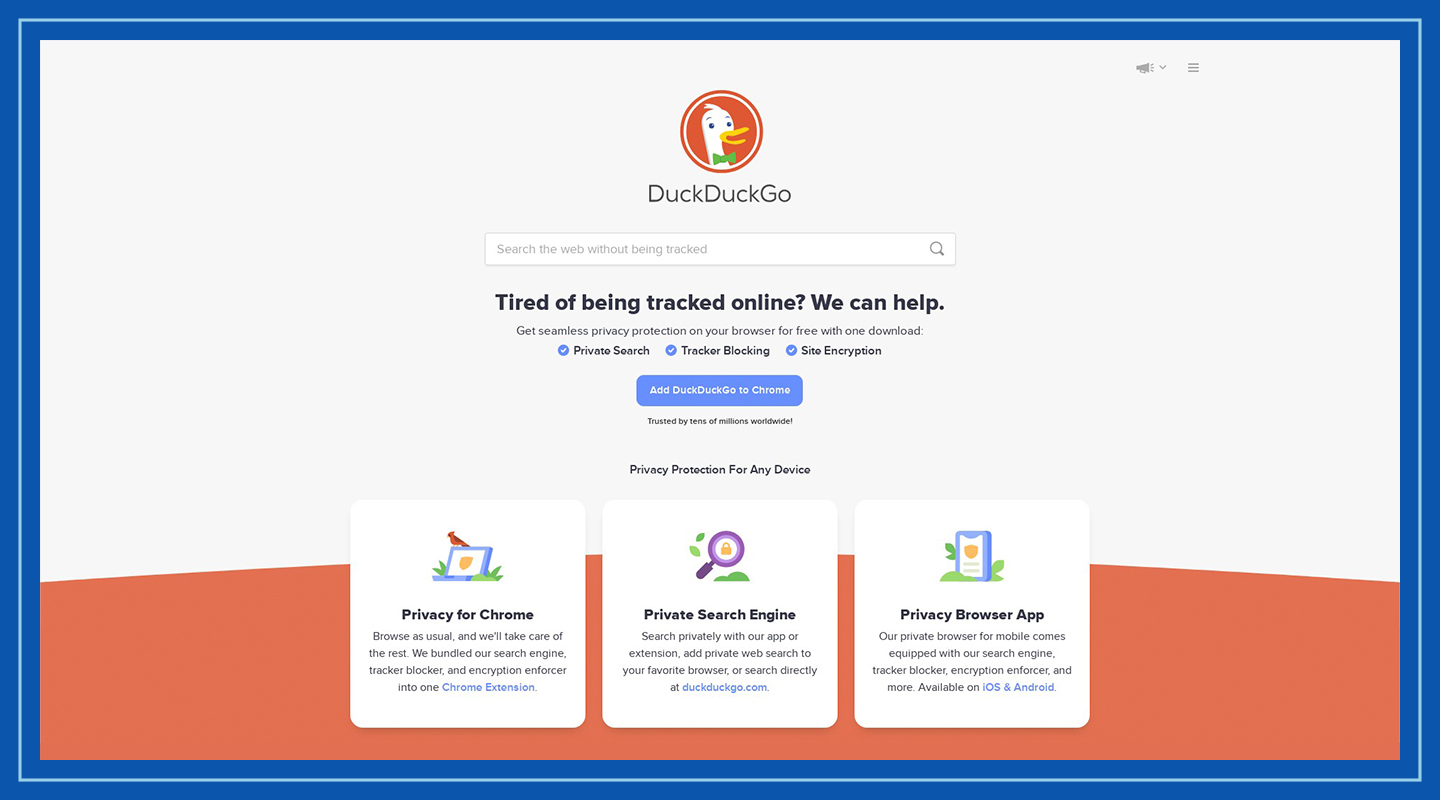
Serving more than 80 million people in 2020, DuckDuckGo (DDG) is one of the most popular private search engines on the market. Accessible from desktop, mobile, browser extension and app, DDG is an anonymous search engine that blocks trackers, allowing users to escape the filter bubble.
DDG features a proprietary !bang shortcut feature that pulls results directly from third-party sites. The engine also generates revenue through the use of private, contextual ads based on search queries, not user profiling.
Best for: Untracked searching
Does not:
- Track IP addresses
- Store search history
- Save user agents
- Build user profiles
Does:
- Block trackers
- Offer email protection
- Offer Android app protection
- Use contextual paid advertising
Features:
- SSL encryptions
- Tracker blockers
- Search shortcuts
- Result categorization
Price: Free
2. Startpage
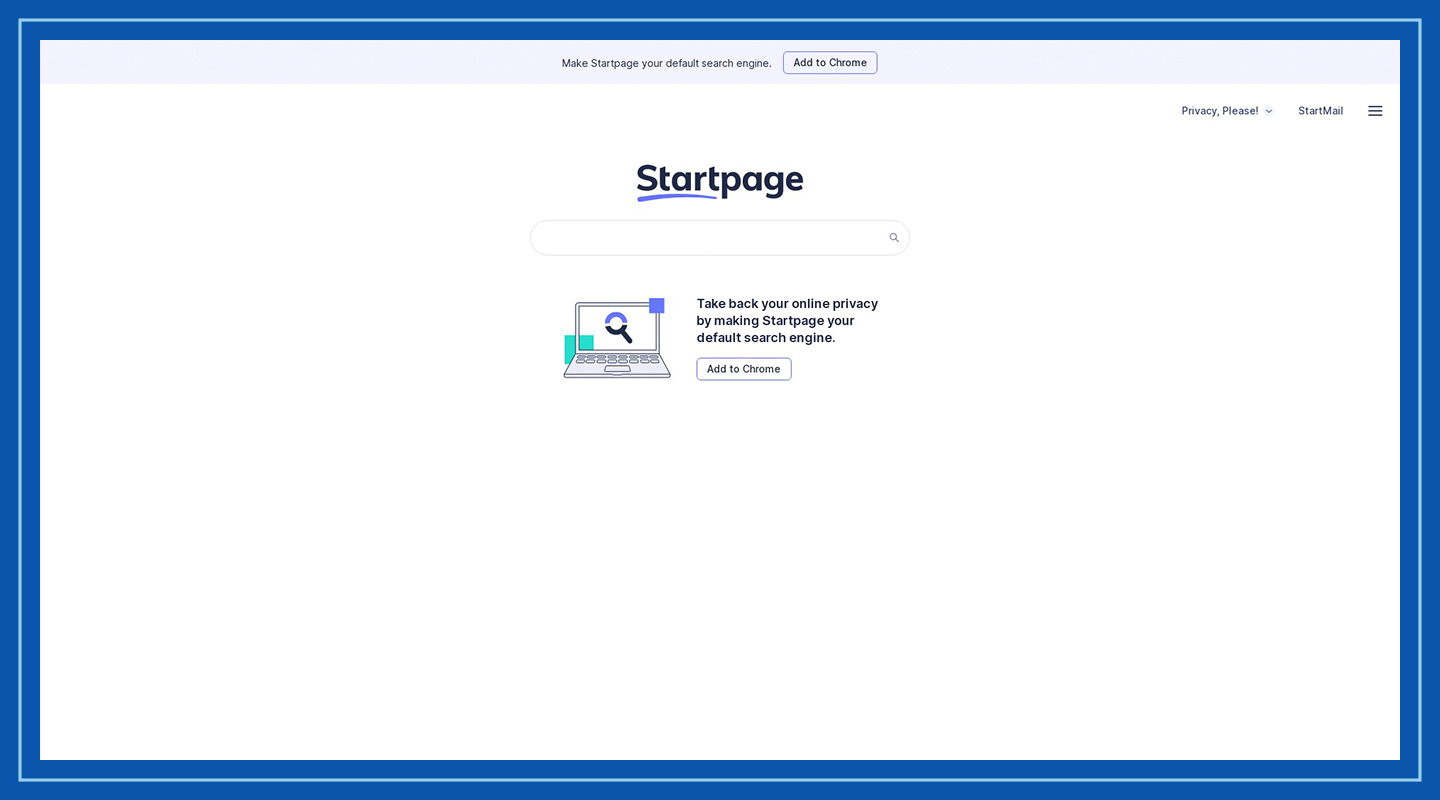
Startpage is an award-winning Netherlands-based private search engine that specializes in blocking third parties from gathering personal data or setting price trackers. Users' personal data such as IP addresses, network settings, browsers, locations or hardware are removed by the company's two levels of managed, on-premise servers, resulting in unpersonalized results.
The engine's anonymous view allows users to choose when to browse without being tracked, and can block targeted and retargeting ads when turned on. The engine is accessible as a Google Chrome extension, and the company earns revenue through paid, contextual advertising.
Best for: Unprofiled browsing
Does not:
- Track IP addresses
- Store search history
- Save user agents
- Build user profiles
- Use price trackers
- Share ISP
- Store cookies
- Store cache
- Share browser type
- Share location information
Does:
- Block trackers
- Include an anonymous view feature
- Use contextual paid advertising
Features:
- Anonymous view
- Encrypted connection
- Blocked price trackers
- Unprofiled news
- Online profile prevention
Price: Free
3. Searx
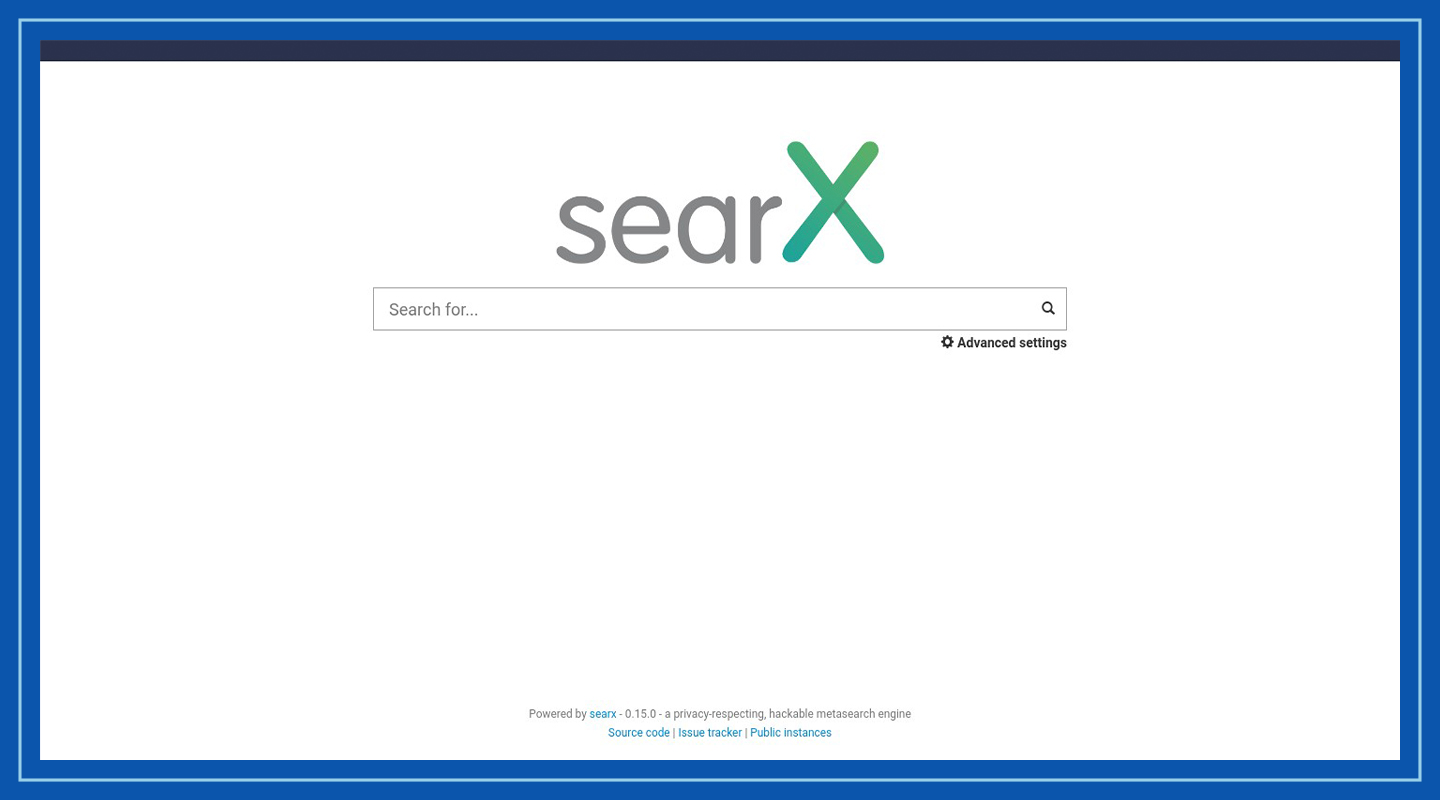
Searx is an open-source metasearch engine that was inspired by the Seeks project. The engine can run on a computer or cloud-based, user-run instances that can be accessed as a Tor hidden service, meaning anyone can run their own public or private instance of Searx.
Searx's search results contain cached links that direct users to saved Wayback Machine pages or proxied direct links to websites, making it easier to hide personal information. The results, gathered from 82 separate search engines and served in more than 20 languages, come in categories including file, image, maps and social media.
The browser is accessible as a public API and Firefox plugin, focuses on a minimalist interface and allows users to customize themes, cookie tracking, which engines to fetch from and what answer to receive.
Best for: Decentralized searches
Does not:
- Track IP addresses
- Store search history
- Save user agents
- Build user profiles
- Share ISP
- Store cookies
- Store cache
- Share browser type
- Share location information
Does:
- Share results in multiple languages
- Provide cookie tracking preferences
Features:
- Customizable
- Open-source
- Proxy service
- Cloud-accessible
- Unique search operators
Price: Free
4. Qwant
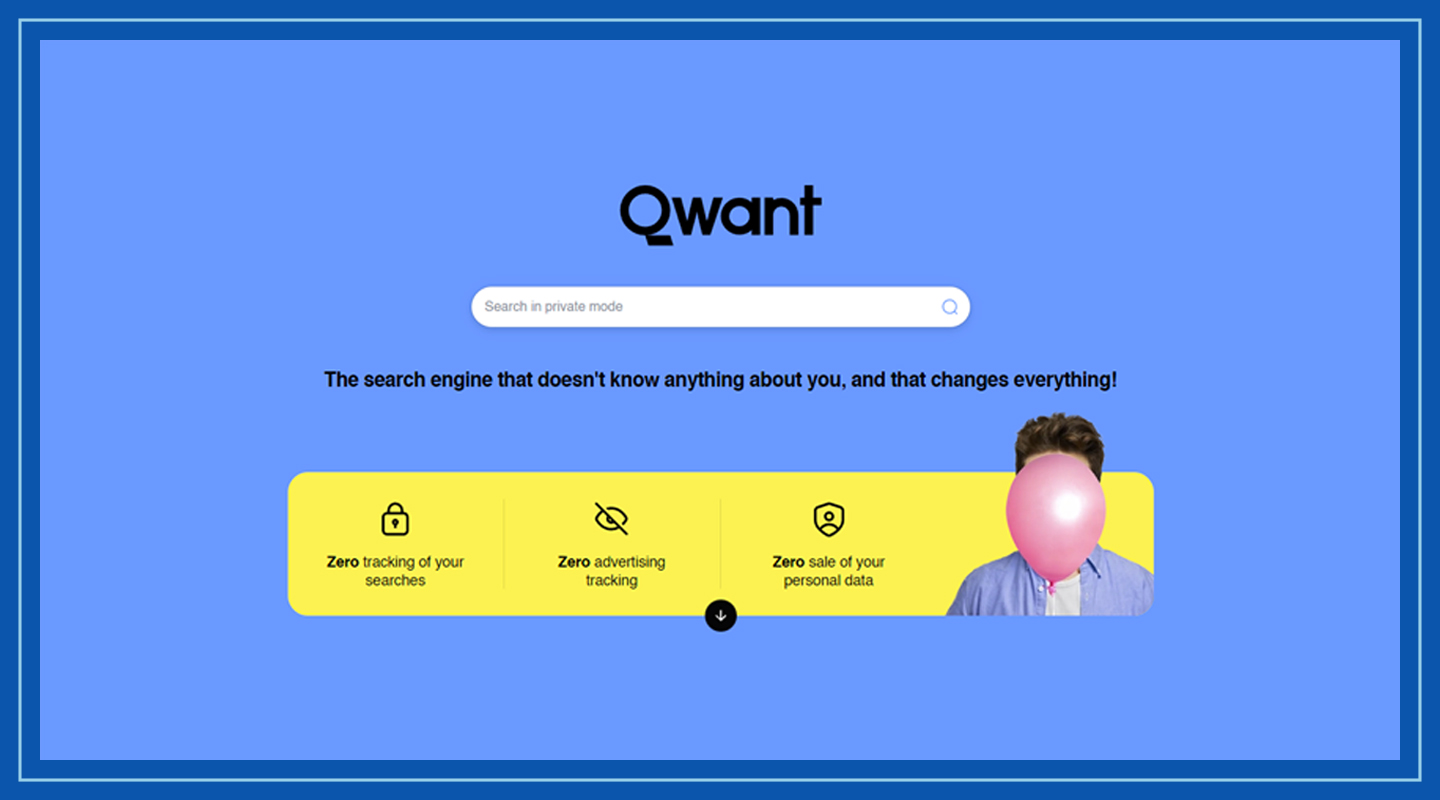
The Qwant search engine was designed to give users a private search experience. Based in France, this search engine provides unpersonalized, algorithm-free results to searches and offers protections that follow 2018 GDPR regulations.
Qwant offers search results in a number of categories, including a unique, social-media based visual board. It can be accessed via browser or Chrome extension and set as a default browser. The site does use paid private ads, and its ad targeting and search results are powered by Bing.
Best for: GDPR-protected searching
Does not:
- Track IP addresses
- Store search history
- Build user profiles
- Store cookies
- Track ads
Does:
- Use contextual paid advertising
Features:
- Multi-category search results
- Qwant Maps
- Qwant Junior for kids
- Chrome extension
- Customizable appearance
Price: Free
5. Swisscows

Swisscows is a Switzerland-based anonymous search engine that uses a proprietary index and years of search expertise. Its technology was designed to make storing personal information impossible, meaning it does not track cookies or build user profiles.
Swisscows prides itself on being family-friendly, meaning it's safe for younger users to browse safely. The engine also offers categorized results, can be added as a VPN Chrome or Firefox extension, integrates with most browsers, is an email provider and uses contextual ads powered by Bing to generate revenue.
Best for: Family-friendly browsing
Does not:
- Store search history
- Store personal data
- Build user profiles
- Store cookies
- Store cache
Does:
- Use AI for result suggestions (GetDigest)
- Use contextual advertising
Features:
- Anonymous view
- Categorized results
- Free music
- TeleGuard messaging
Price:
- Free
- VPN monthly subscriptions
- CHF 10 per month monthly subscription
- CHF 7 per month yearly subscription
6. MetaGer
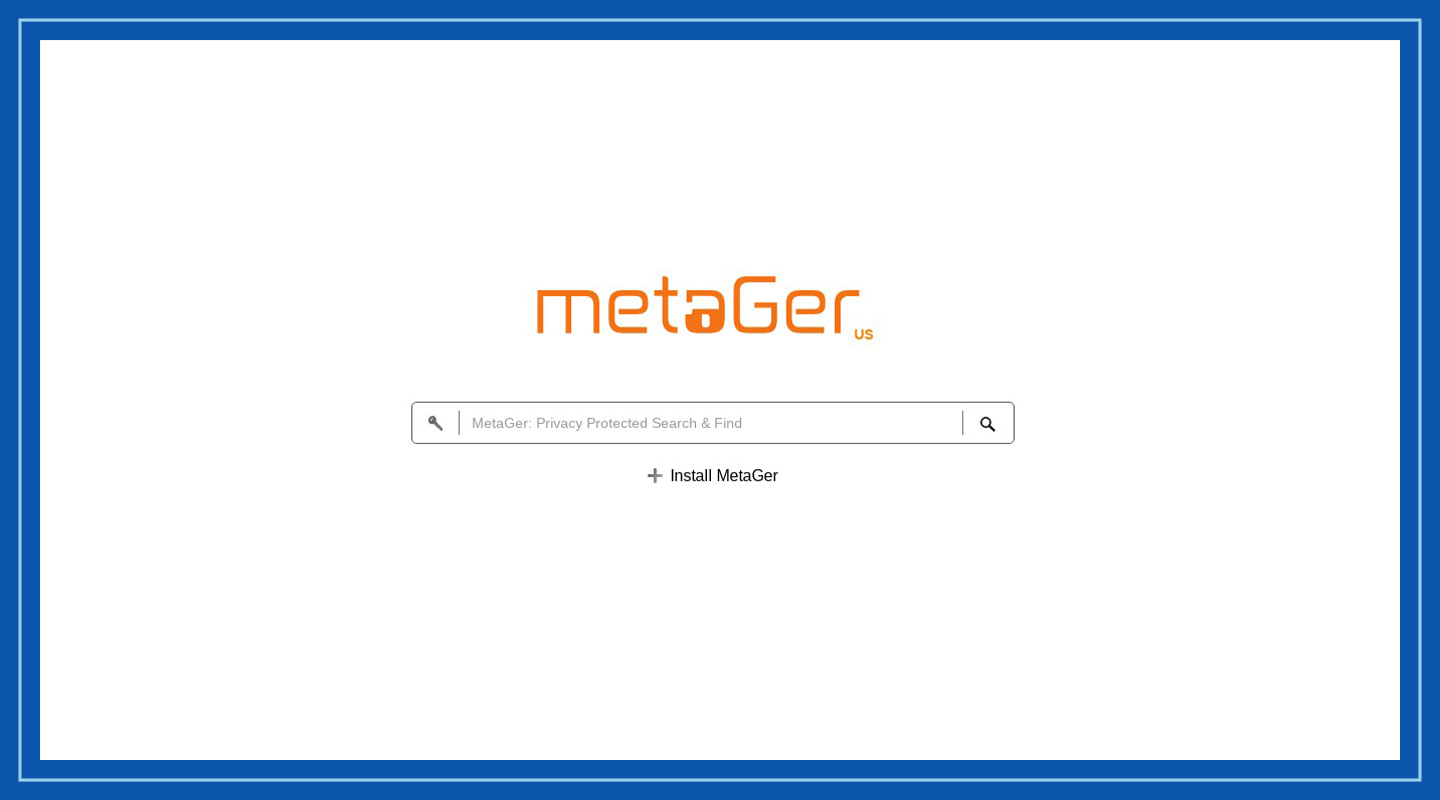
MetaGer is a metasearch engine based in Germany that offers full data protection, hides IP addresses and blocks targeted ads. Using an anonymizing proxy to protect users while they browse the SERP, MetaGer prioritizes protection against censorship, providing users with unbiased and unfiltered search results. The engine also provides results crawled from multiple leading search engines.
Additionally, MetaGer is run by a nonprofit organization committed to sustainability, so all its services runo n renewable energy and use transparent algorithms. The engine is accessible through a browser plugin, smartphone apps and Tor hidden service, and offers access to maps without location tracking.
Best for: Deep-browsing searches
Does not:
- Track IP addresses
- Share location information
Does:
- Block targeted ads
Features:
- Anonymous setting
- Ad-free for members
- Browser extensions
- Proxy protection for off-results browsing
Price:
- Free with ads
- Members of SUMA-EV–Association for Free Access to Knowledge can search without ads
7. Mojeek
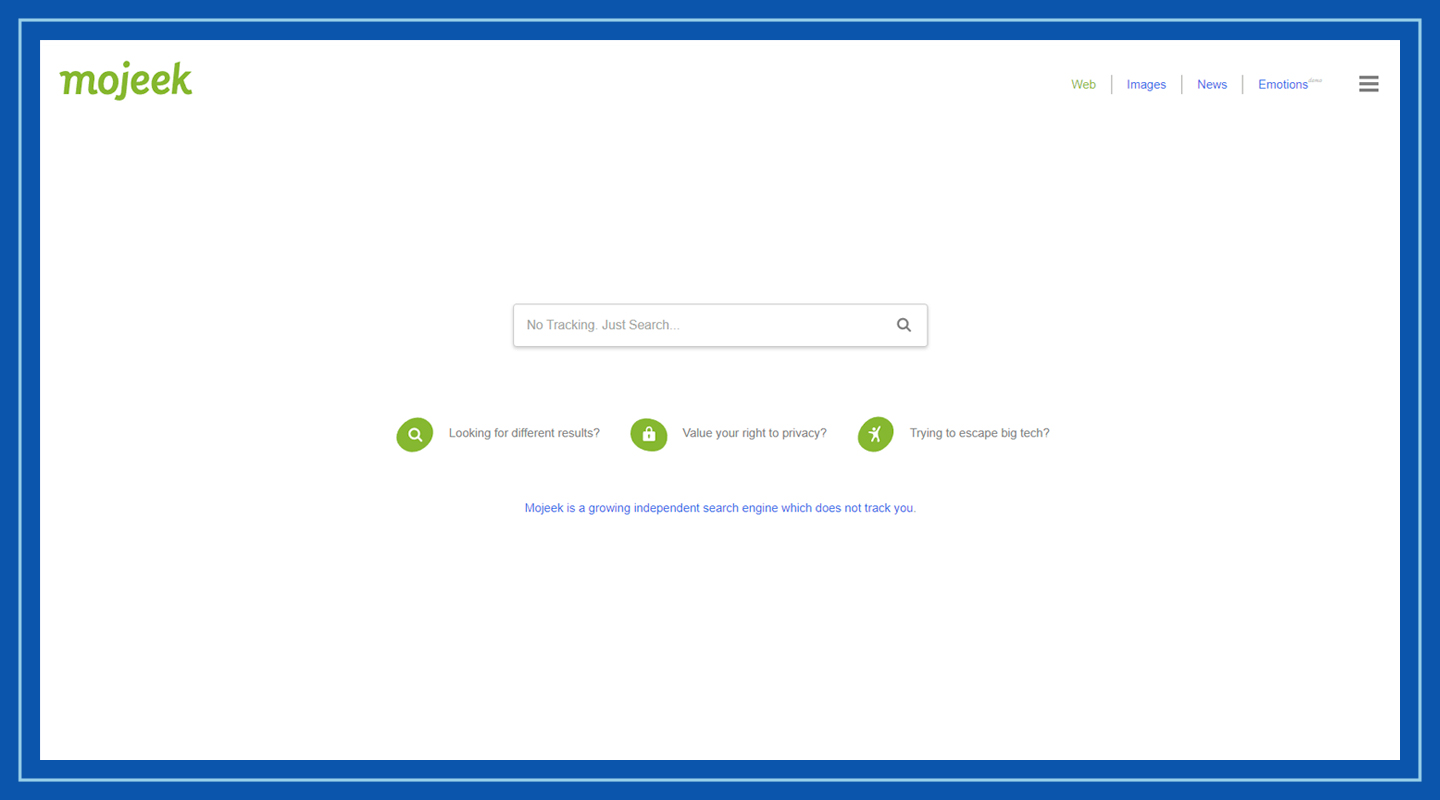
Mojeek is an independent, alternative search engine that values users' rights to privacy and puts users first. Indexing over 5 billion pages with owned crawlers, the engine provides independent and unbiased results in four categories, including an emotion-based category. The browser is also accessible via a smartphone app.
With a company value of "doing what's right," Mojeek is committed to sustainability, operating from the U.K.'s award-winning greenest data center.
Best for: Eco-friendly searching
Does not:
- Track user data
- Sell data to third parties
Does:
- Include customizable search preferences
Features:
- Customized search results
- Smartphone app
Price: Free
8. Disconnect Search
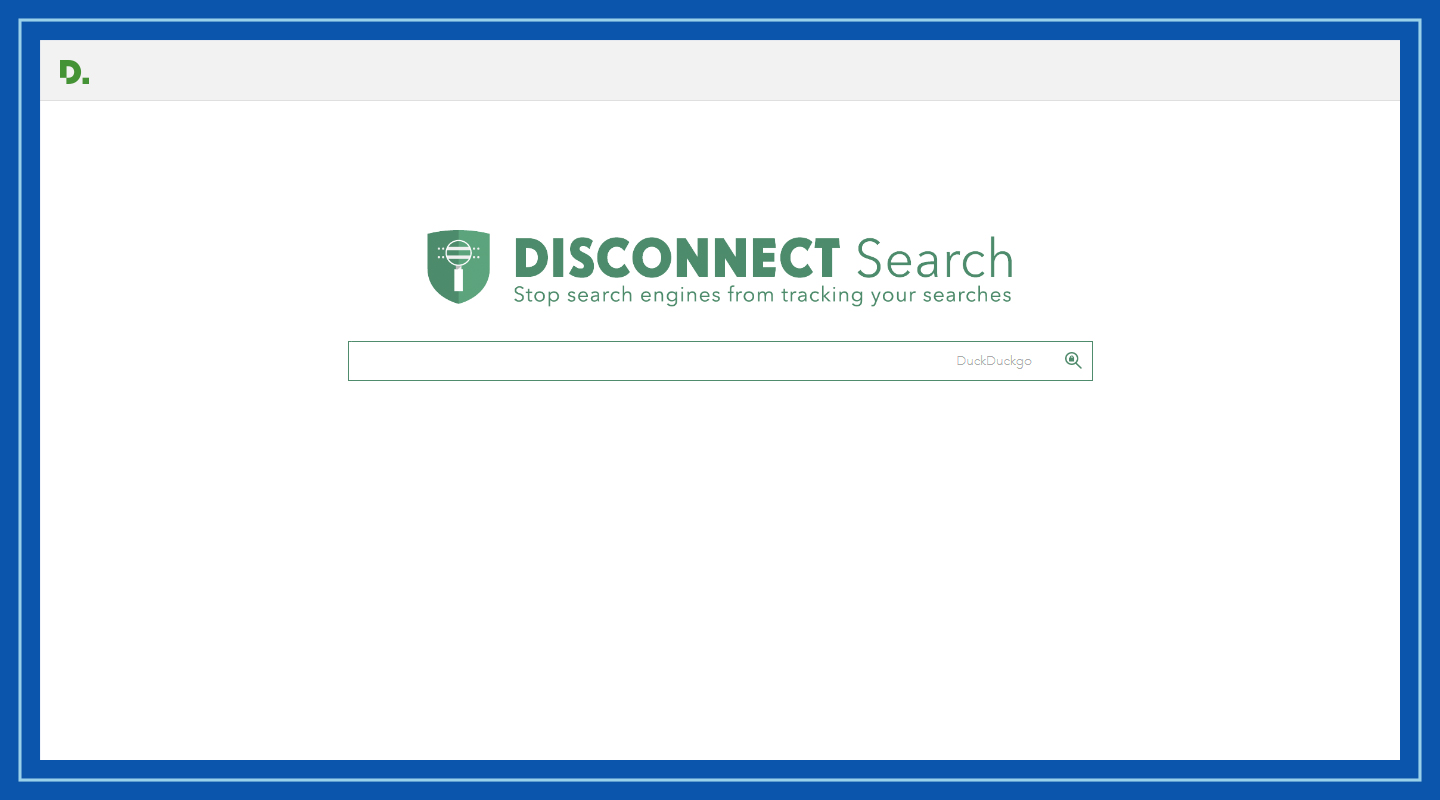
Developed by former Google employees, Disconnect Search is an alternative private search engine that provides privacy to over 750 million users. The engine synthesizes proxied results from multiple leading search engines.
Disconnect Search takes user security seriously, with a unique focus on blocking malicious ad and content targeting used by criminal hackers, data brokers and adverse nation-states. Anonymous and encrypted, Disconnect Search also features an ad blocker that reduces the amount of SERP clutter, making it faster to find information.
Best for: Protected searching
Does not:
- Track IP addresses
- Store search history
- Store fingerprint data
- Store cookies
- Share location information
Does:
- Use encryption protection
- Block targeted ads
- Block surveillance programs
- Remove ad clutter
Features:
- Anonymous view
- Browser extensions
Price: Free and premium subscription options
9. Ecosia
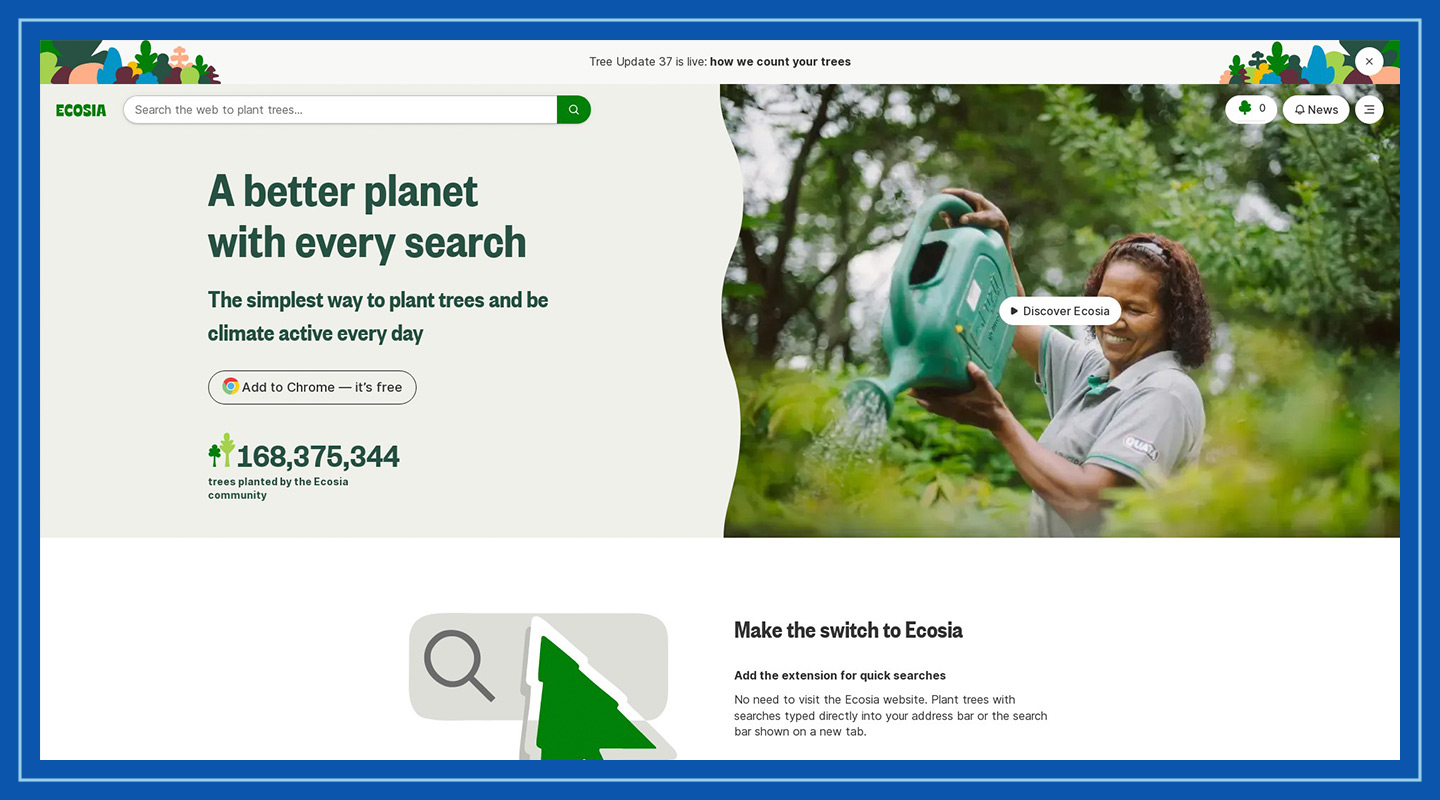
German-based Ecosia is known as one of the greenest private search engines. Run as a social company, 80% of Ecosia's profits from ad revenue are donated to planting trees as part of the company's commitment to being CO2 negative. The company is committed to transparency and regularly shares financial reports and tree-planting campaign updates.
Ecosia is accessible as a Chrome extension, browser application, search engine and mobile app. The company does not sell private data and does not use external tracking tools to monitor performance data. It generates revenue through click-based advertising.
Best for: Eco-friendly searching
Does not:
- Share location information
- Use external tracking tools
- Sell personal data
Does:
- Track analytics
- Use click and affiliate advertising
Features:
- Categorized results
- Environmental impact counter
- Transparent financial information
Price: Free
10. Wolfram Alpha
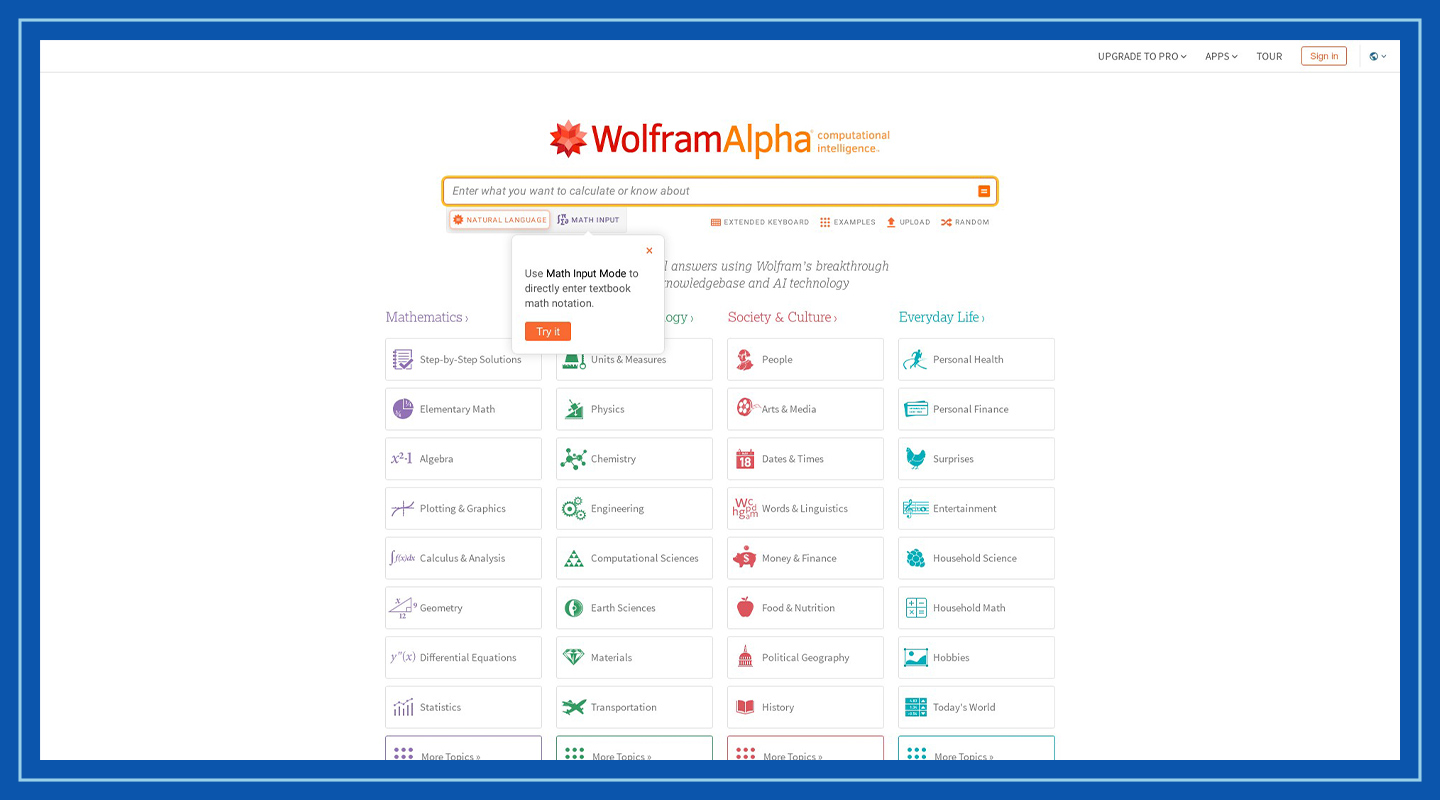
Wolfram Research's WolframAlpha private answer engine is designed to provide expert-level answers to fact-based questions using data sourced from external sources. This means that unlike traditional search engines, WolframAlpha search results are computed through objective data that has been drawn from factual data sources and algorithms.
WolframAlpha results are scientifically and academically focused, designed to help users learn about complex topics with step-by-step solutions through free-form input. The topics are divided into four primary categories — Mathematics, Science and Technology, Social and Culture, and Everyday Life — followed by a series of subcategories that users can use to navigate and discover solutions.
Users can access the answer engine online via browser or mobile app.
Best for: Academic searching
Does not:
- Sell personal data
Does:
- Source from third-party search engines
- Include private ads
Features:
- Customizable settings
- Free-form input searching
- Result categorization
Price:
- Basic Plan: Free
- Pro Plan
- $60 annually
- $7.25/month
- Pro Premium Plan
- $99 annually
- $12/month
- Pro for Students: $5.46/semester
- Pro Premium for Students: $9/semester
11. Search Encrypt
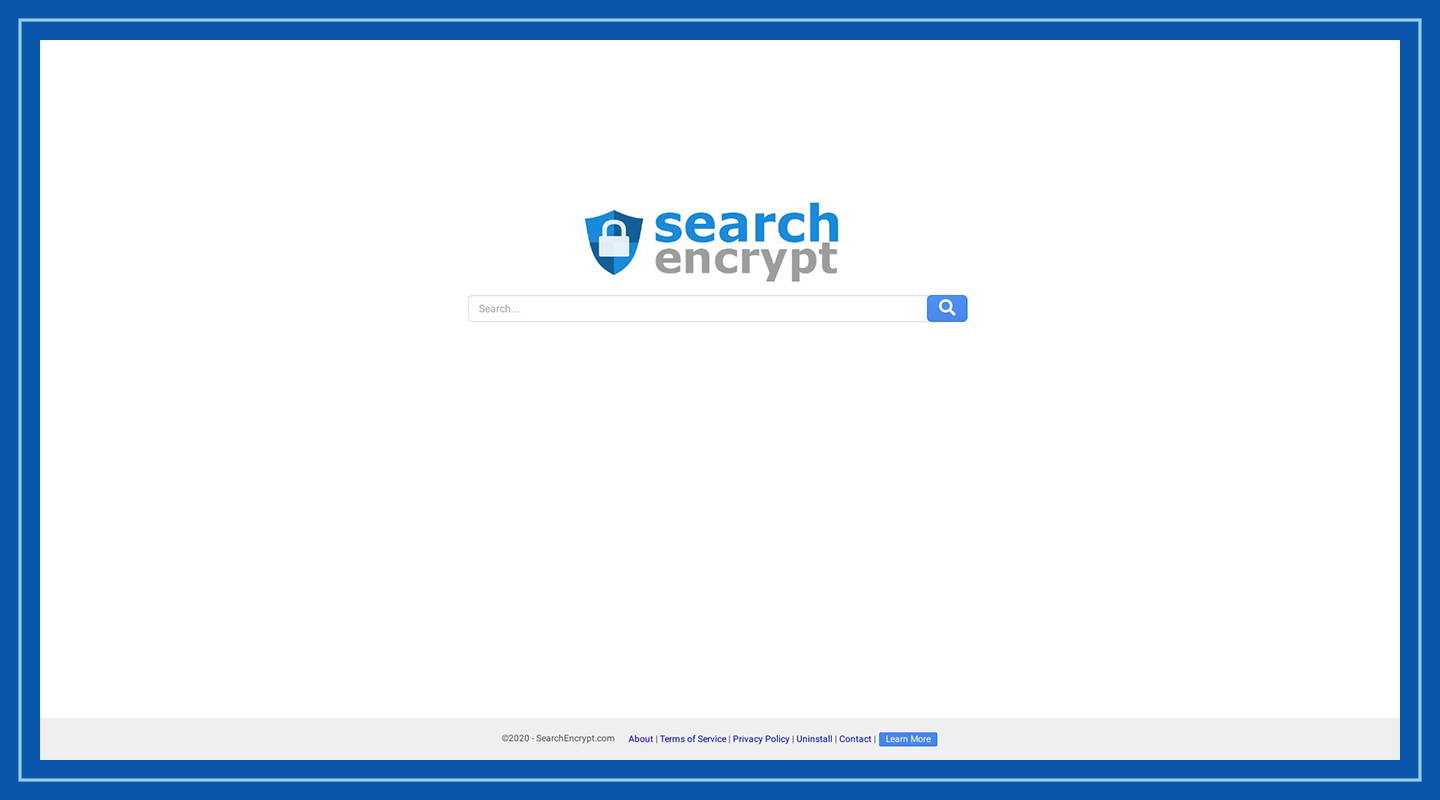
Search Encrypt is a privacy-enhanced search engine that values privacy above all else. Both a search engine and a browser extension, Search Encrypt uses encryption to mask search terms locally before sending queries to servers, providing high-quality forward secrecy. And most unique of all, results expire after 30 minutes of inactivity, making them impossible to be viewed again.
Best for: Encrypted searches
Does not:
- Store search history
- Build user profiles
- Store cookies
- Store cache
Does:
- Use SSL encryption
- Use perfect forward secrecy
- Delete history after inactivity
- Use paid advertising
Features:
- SSL encryptions (HTTPS)
- Perfect forward secrecy
- Suggested results
Price: Free
12. Gibiru
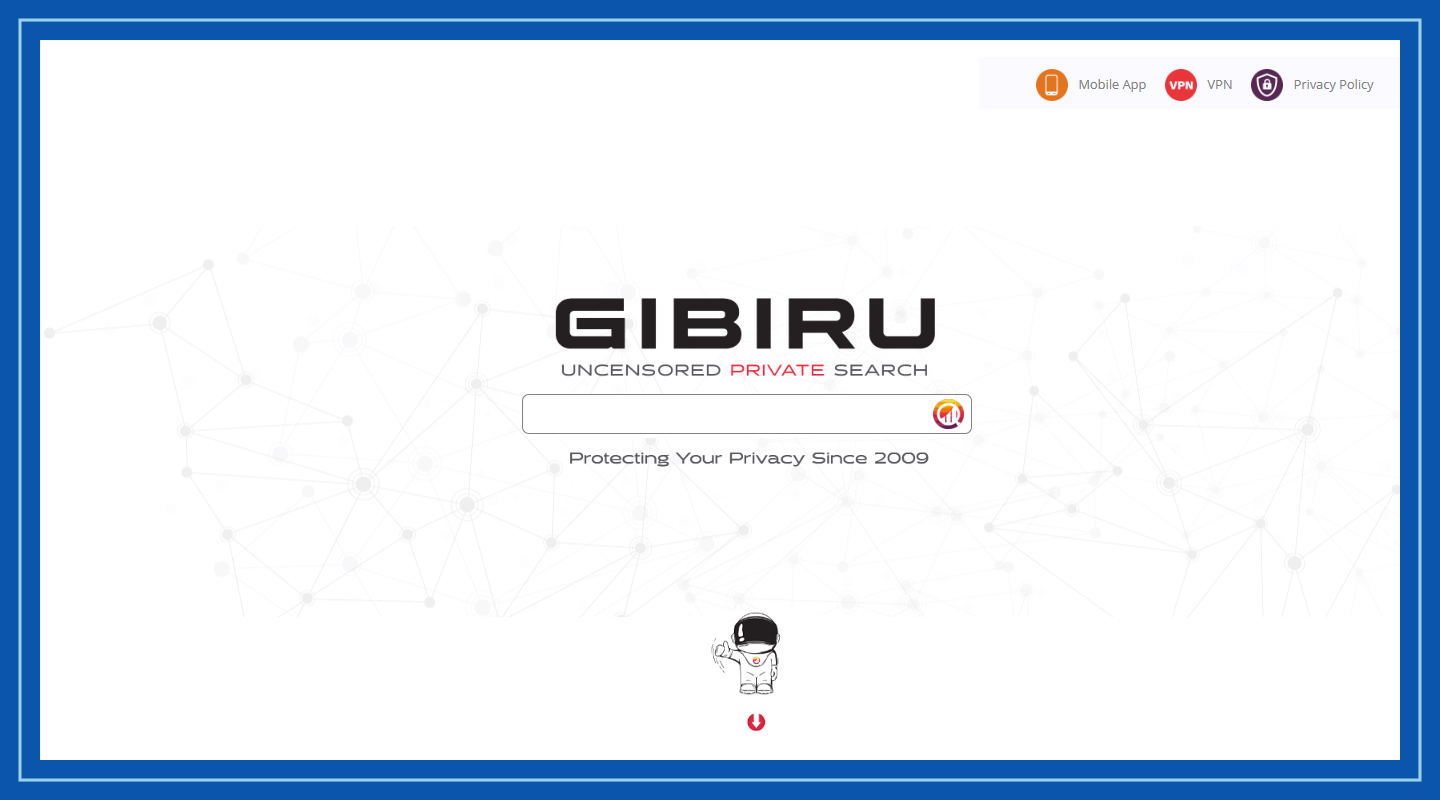
Gibiru is an uncensored private search engine whose goal is to provide access to information away from the filter bubble and Big Tech censorship. Its no-log search and no IP address or cookie tracking policies prevent it from selling personal data to third parties, meaning no retargeting.
Gibiru does not extend cookie blocking once you visit outside the SERP. However, the Gibiru Wormhole app for mobile devices acts as a VPN and protects cookies from being stored on Android and Apple devices.
The engine is accessible via browser extension and downloadable app. The company earns revenue from commission-based plans, not by selling personal data.
Best for: Censor-free searching
Does not:
- Track IP addresses
- Store search history
- Store cookies
- Sell persona data
Does:
- Use affiliate-based advertising
- Provide mobile VPN
Features:
- Browser extension
- App with VPN service
- Result categorization
Price: Free
13. Lukol
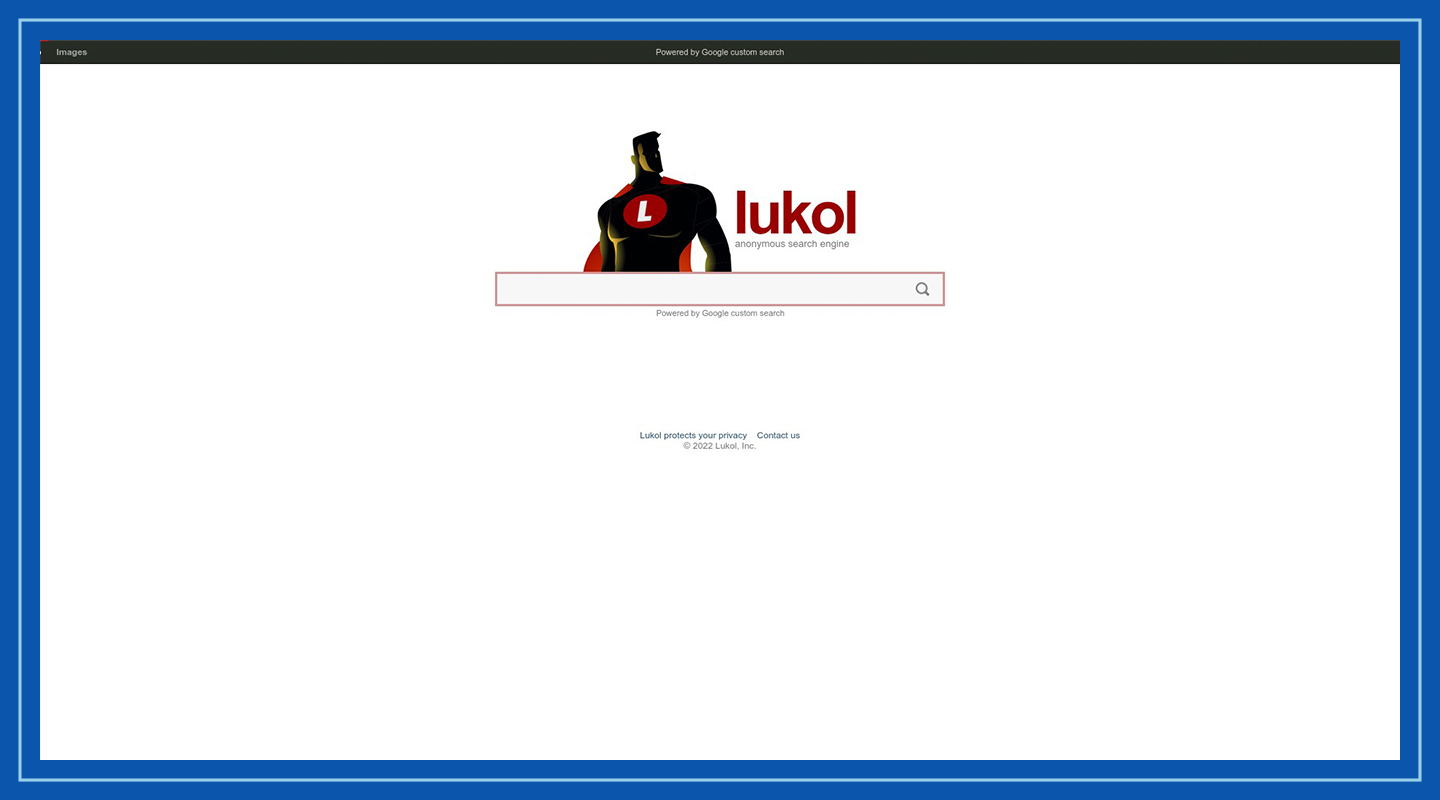
Lukol is an anonymous search engine powered by Google Search to help users browse the internet privately. It provides web, image, news and video results, and can be used on the web or added as a Firefox browser extension.
Although Lukol does not collect personally identifiable information or require users to register to use the search functionality, it does use cookies to personalize content and ads by selling cookie information to third parties. It also uses cookies to analyze site traffic and provide user behavior analysis to third parties.
Best for: Personalized private browsing
Does not:
- Require registration
Does:
- Use cookies
- Sell user behavior data to third parties
- Use cookies to track performance
- Use paid advertising
Features:
- Categorized results
- Firefox extension
Price: Free
14. Peekier
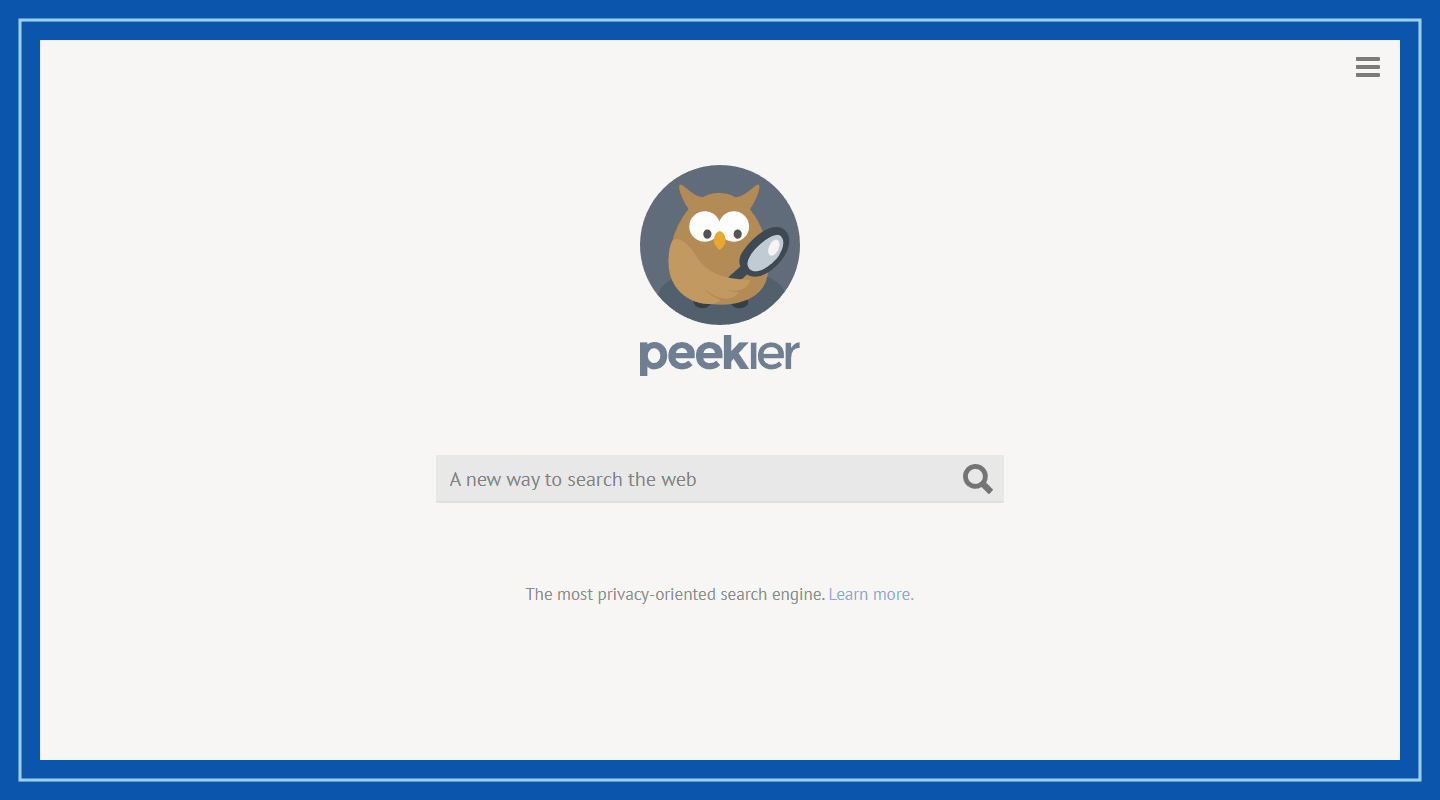
Peekier is an alternative, privacy-based search engine designed to enhance a user's experience while browsing the internet. Although personally identifiable information such as user agents, IP addresses, unique IDs and search histories are not stored, the engine temporarily stores search queries for caching, analytical data and service improvement purposes.
Additionally, although the site itself does not use cookies to track personal information and uses HTML5 local storage to store location, region or save setting preferences, their caching provider may use single session cookies for anti-DDOS protection. SSL/TLS encryption is also used throughout the site, and search query leakage — or an indication within the HTTP Referer header that a link was clicked — does provide a level of insight into your search engine usage.
Two factors that set Peekier apart from other search engines include its ability to play YouTube videos directly from the website and its expandable preview boxes on SERPs. However, YouTube autoplay is turned off by default due to YouTube's use of tracking IDs and cookies for data capturing.
Best for: Personalized browsing
Does not:
- Track IP addresses
- Store search history
- Save user agents
- Build user profiles
- Share ISP
- Store cookies
- Store cache
- Share browser type
- Share location information
Does:
- Cache search queries for analysis
- Use HTML5 for preference storage
- Allow cooking tracking preferences
Features:
- Playable YouTube video on-site
- Customizable preferences
Price: Free
15. Brave Search
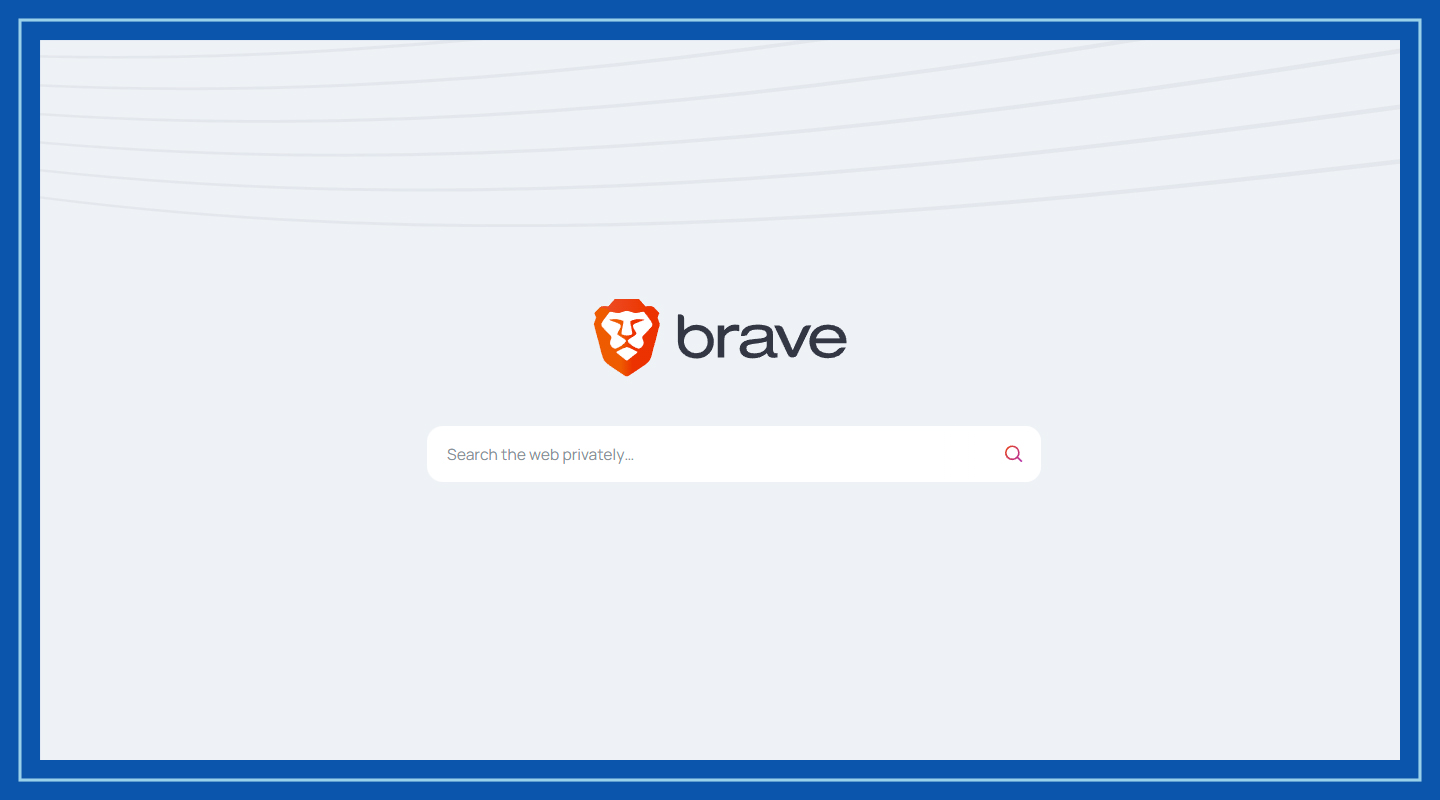
Brave Search is an independent search engine that is often used as a default engine for the Brave web browser application. Although the engine aims to provide users with web, news, image and video search results directly from their independent index of the web, the platform includes a small percentage of results from third-party APIs that result from big-name search engines like Google or Bing.
Committed to being independent, transparent and focused on users, Brave provides a browsing experience without tracking behavior, searches or clicks.
Brave Search also uses private usage metrics that can be turned off in preferences to monitor and forecast traffic and performance. Additionally, it does not block ads by default but provides users with the option to opt into Brave Rewards, a commission-based program that rewards users for accepting private, targeted ads to earn exchangeable reward points.
Best for: Search that supports local businesses
Does not:
- Build user profiles
- Block ads
Does:
- Gather results from third-party engines
- Track performance with private analytics
- Include customizable tracking preferences
Features:
- Anonymous search
- Preferences
- Customizable themes
- Desktop and mobile browser integration
- Ranking transparency
- Independent search index
Price: Free
16. Oscobo
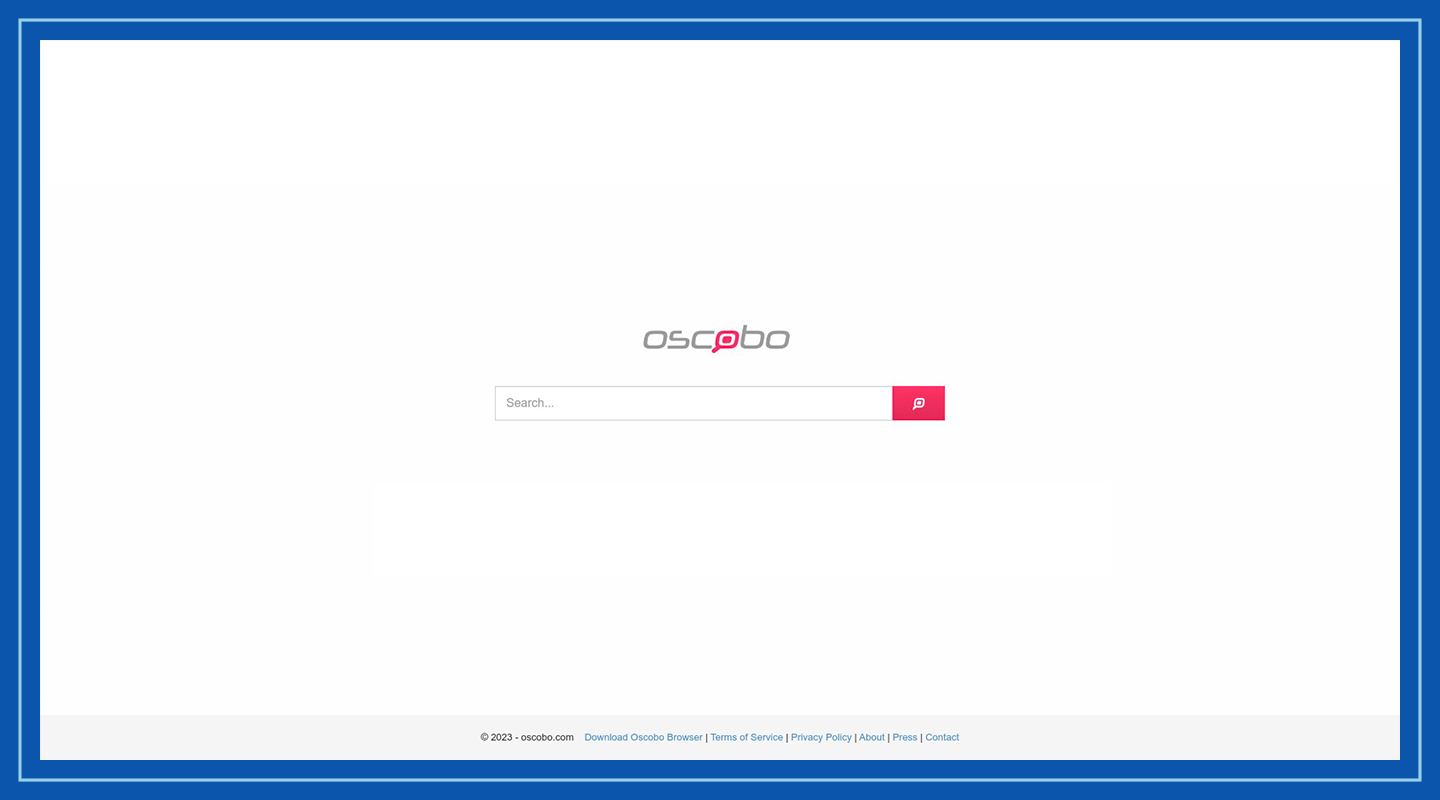
Oscobo is a U.K.-based anonymous search engine designed to protect users from Big Tech selling their data to third parties. The browser does not store personal information and does not require any sort of sign-in or registration.
Oscobo's SSL encryption and perfect forward secrecy protects user connection between browsers and servers by encrypting searches locally, protecting your activity from interceptors. Its lack of third-party script and analytics and hidden meta information provide an extra layer of security for users.
Best for: Anonymous browsing
Does not:
- Sell data to third parties
- Store personal information
- Require registration or login
- Use third-party analytics
Does:
- Use SSL encryption
- Use perfect forward secrecy
Features:
- Downloadable browser
Price: Free
17. Gigablast
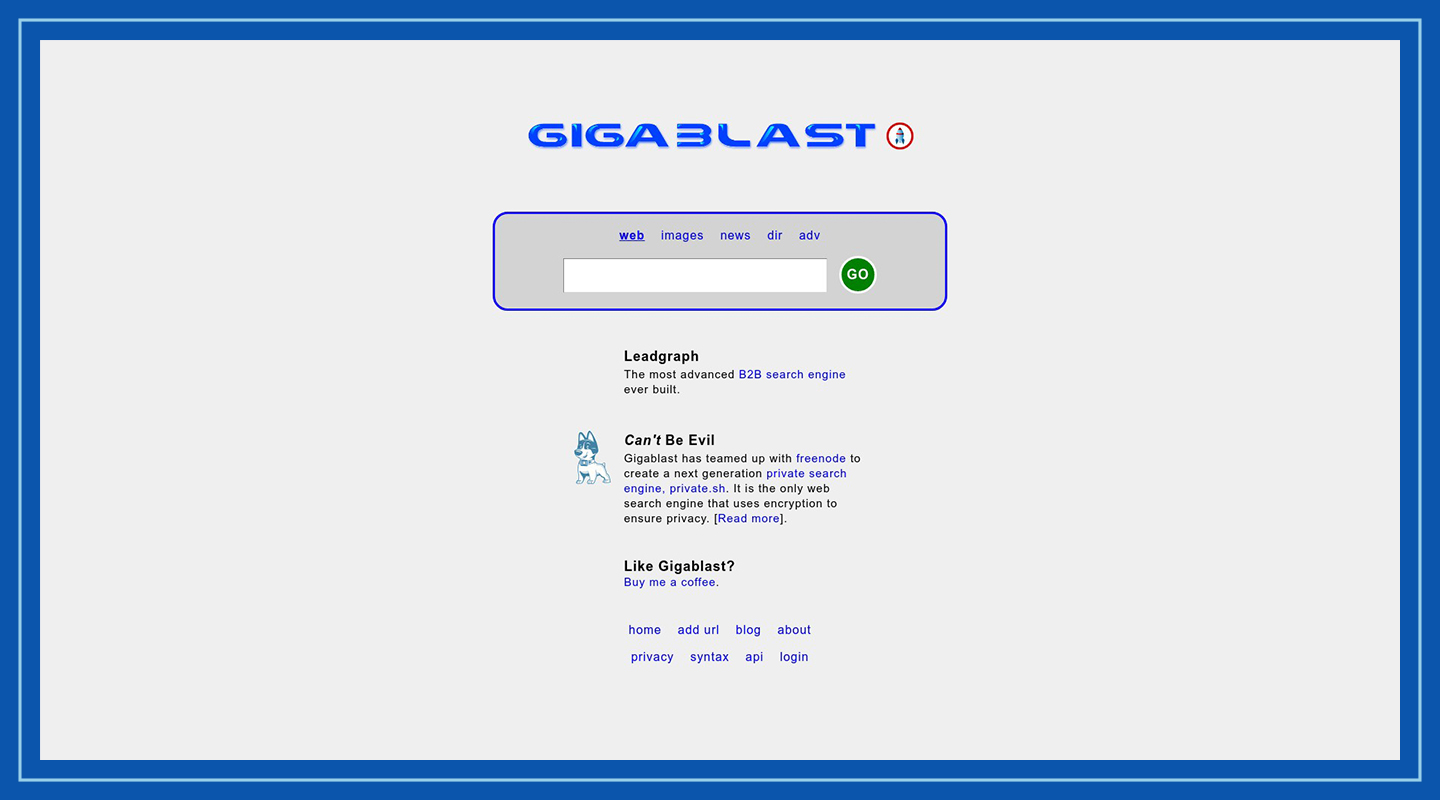
Gigablast is an alternative open-source search engine that offers users independent search results sourced from their proprietary web crawler. Coded in C and C++ programming language, the browser supports Boolean algebra operators and provides query-related information on results pages called Gigabits.
Gigablast believes that user search behaviors belong to users, not Big Tech corporations. As such, it does not sell search activity or IP addresses to third-party advertisers. Additionally, query logs are deleted regularly to ensure privacy.
Best for: Open-source input
Does not:
- Track IP addresses
- Store search history
- Save user agents
- Sell data to third parties
Does:
- Accept open-source input
- Delete query logs regularly
Features:
- Boolean algebra operators
- Query-related result snippets
- Open-source
- Independent indexation
Price: Free
18. Infinity Search
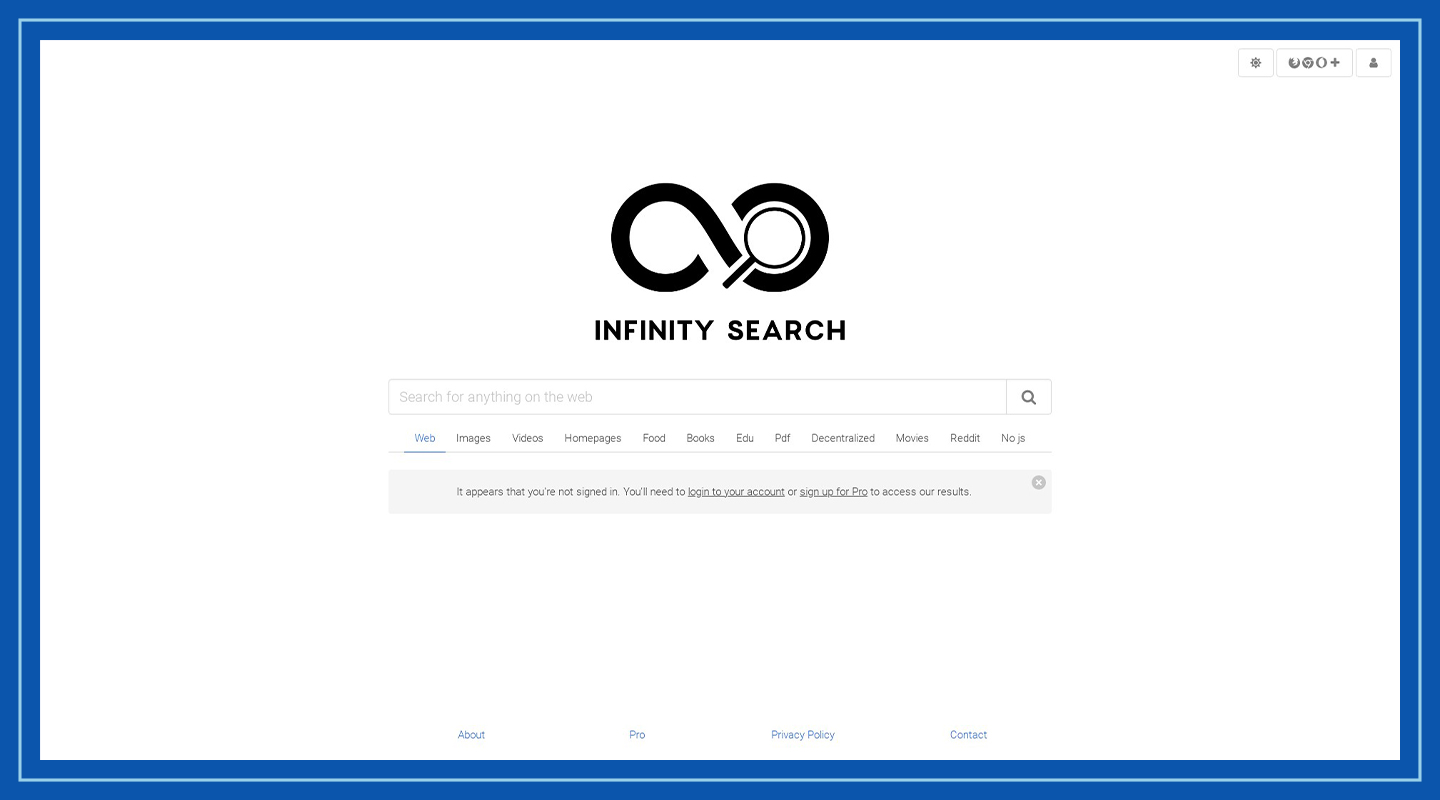
Infinity Search is an alternative private search engine that combines web indexes from leading search engines like Bing with its own to provide users with unlogged search results. Its search engines are designed not to save user searches, and utilize the same !bang functionality used on the popular private engine DuckDuckGo.
Infinity Search is currently a subscription-based service. For a small fee, users or businesses can have complete control over interface customization, advanced searching capabilities and experience ad-free browsing.
Best for: Privatized searching
Does not:
- Store search history
- Serve ads
- Sell data to third parties
Does:
- Require registration
- Charge a fee
Features:
- Customizable interface appearance
- 100% no ads
- Advanced searching capabilities
Price:
- Infinity Pro
- $5 /mo
- $50 /year
- Infinity Business: custom pricing is available
Are Private Search Engines Actually Private?
Similar to incognito browsing, it's nearly impossible to be completely private. Different types of private search engines offer different levels of privacy to users. Engines that use VPNs offer more security to those that do not.
To pick the best private browser, explore the brand's about page and privacy policy. This information will inform you how protected your personal data is, and whether or not the company will sell your data to third parties.
What to Consider in a Private Search Engine
Genuinely secure and anonymous search engines guarantee:
- Customized experiences with changeable settings
- Easy interfaces
- Accurate search results
- Maintained privacy, meaning personal data is not tracked
- No tracking cookies
- Run by a trusted team or organization
From paid services to completely untracked browsers, users have the opportunity to explore some of the best private search engines with a simple download.
However, private web searching isn't the only way to stay safe online. Take the extra steps to protect your personal data and devices by downloading a secure VPN service and antivirus software. Combining private search, VPNs and protective scanning will help keep your personal information safe and secure.
Comments
Post a Comment